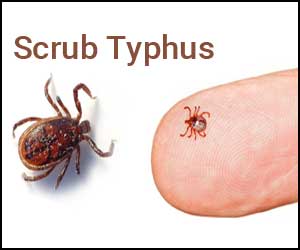- Home
- Editorial
- News
- Practice Guidelines
- Anesthesiology Guidelines
- Cancer Guidelines
- Cardiac Sciences Guidelines
- Critical Care Guidelines
- Dentistry Guidelines
- Dermatology Guidelines
- Diabetes and Endo Guidelines
- Diagnostics Guidelines
- ENT Guidelines
- Featured Practice Guidelines
- Gastroenterology Guidelines
- Geriatrics Guidelines
- Medicine Guidelines
- Nephrology Guidelines
- Neurosciences Guidelines
- Obs and Gynae Guidelines
- Ophthalmology Guidelines
- Orthopaedics Guidelines
- Paediatrics Guidelines
- Psychiatry Guidelines
- Pulmonology Guidelines
- Radiology Guidelines
- Surgery Guidelines
- Urology Guidelines
Early Use of Doxycycline in Scrub Typhus reduces complications

Dr. Jatinder Mokta Professor, IGMC, Shimla, Himachal Pradesh and colleagues have written an article on Early use of Doxycycline reduces Scrub Typhus associated complications. The authors have vividly shared their experiences and results of an observational study depicting the need for starting Doxycycline early in Scrub Typhus. The study has appeared in the Journal of Association of Physicians.
According to the authors, Scrub typhus has recentlyemerged as an important cause of febrile illness in this Himalayan region of the country. However, it is under-considered in the differential diagnoses of febrile illnesses and is not treated and thus, patients often land up with complications in this tertiary care hospital.
It is a mite-borne rickettsial disease caused by Orientia tsutsugamushi leading to widespread vasculitis and consequently organ dysfunction. The early clinical manifestations of the disease are nonspecific and are characterized by fever, chills, headache, and myalgia. These are easily overlooked and consequently, patients often present with severe complications which otherwise can be prevented with early clinical diagnosis and treatment.
The researcher conducted the study to assess the failure of the primary care doctor to consider scrub typhus as a cause of pyrexia and delay in appropriate treatment as a factor for increased morbidity and mortality among patients with scrub typhus.
The researchers conducted a retrospective observational study done in the Department of Medicine from August 2013 to October 2013. All the patients more than or equal to 18 yrs of age admitted during this period with scrub typhus were analysed and their outcome followed. S. ELISA was used to detect scrub typhus.
Out of a total of 106 patients were observed out of which only 10 patients had received anti scrub antibiotics (doxycycline or azithromycin) prior to admission. Seven patients died (6.6%) and none had received anti scrub antibiotics prior to hospitalisation and presented late with an average duration of illness of 9.2 days and had a more severe form of complications at presentation. Those patients who had received prior anti scrub treatment had fewer and mild complications and none died among that group.
The researchers concluded that Doxycycline or azithromycin (pregnancy or in a child <8 years) should be included in the initial empirical antimicrobial therapy in febrile patients during tick season to treat scrub typhus. The goal is to begin anti-scrub therapy early to reduce the morbidity and mortality associated with this illness.
Severe complications of scrub typhus reported; includes interstitial pneumonia, acute renal failure, meningoencephalitis, gastrointestinal bleeding, and multiple organ failures. Patients often die because of these complications. During the pre-antibiotic era, the overall mortality was 50%. As effective antibiotics came, mortality and morbidity have decreased. For various reasons effective treatment is often delayed, prominent of which is a failure to suspect scrub typhus as a cause of febrile illness by the primary care physician leading to complications.

Disclaimer: This site is primarily intended for healthcare professionals. Any content/information on this website does not replace the advice of medical and/or health professionals and should not be construed as medical/diagnostic advice/endorsement or prescription. Use of this site is subject to our terms of use, privacy policy, advertisement policy. © 2020 Minerva Medical Treatment Pvt Ltd